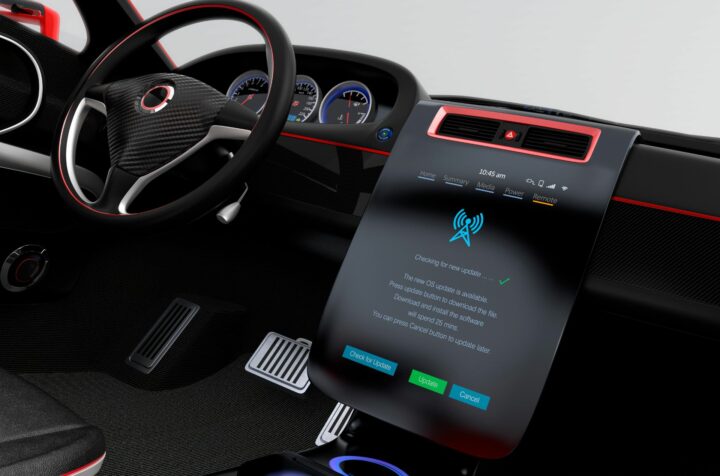Digital Thinkers Forum – The Fourth Edition
The Digital Thinkers Forum brings together leading minds from the digital world to share their expert insights into the latest digital trends, challenges, and opportunities.
For the fourth edition, we were excited to have digital marketing and social media expert Björn Radde take our virtual stage and deliver his keynote on ‘The Future of Digital Customer Experience’ on June 30, 2022.
This webinar follows the success of our first three forums, with the themes ‘Customers the Day After Tomorrow’, ‘Innovate Faster, Communicate Smarter’ and ‘CX – Lessons Learned from Superheroes’.
Björn is an international speaker, author of two books, and currently the Vice President Digital Experience at T-Systems International.
This fourth edition was hosted by Georg Hansbauer, Co-Founder and CEO of Testbirds, who gave a short introduction of our Digital Thinkers Forum and the previous editions. Georg then introduced our keynote speaker, Björn Radde, and the topic, The Future of Digital Customer Experience.
Before diving into the future of digital customer experience, Björn took us back into the past to show how innovation has impacted the customer experience, from the ‘sandwichman’ to mobile devices and social networks.
He then explored seven areas of technological innovation that will change the digital customer experience in the future.
Watch the full webinar below to find out more about these innovations, or read on for a quick recap.
Advertising
First, Björn shared how advertising has evolved to cater to social media. He cited the example of 3D ads. Given how engaging 3D ads can be, it is likely that people would post about these ads on their social accounts like Instagram. These people are then advertising the 3D ad on social media. Such feed hacking, as mentioned by Björn, would see customers further the reach of the 3D ad.
Retail shops are increasingly aware of this need to be Instagrammable, with more designing their shopfronts to cater for such social media documentation, which will change how we experience retail shops.
The viewing experience will also be impacted. With more people using streaming services for their favorite TV shows, streaming platforms will increasingly use data to improve both the digital experience and advertising for their viewers and customers.
The advertising on broadcast TV has evolved too, with contextual video tagging allowing for a relevant ad to be displayed whenever a keyword is mentioned in the TV show.
Voice Assistants
Björn moved onto the role of voice assistants in changing the way customers interact with companies and businesses.
He shared how voice assistants in hotels will improve the guest experience, even allowing guests to order room service in their preferred language. In-car voice assistants, with the help of location-based services, could provide drivers with offers and deals from partner F&B outlets along their route.
Location-based services could also evolve your shopping experience through your smartwatch. Imagine you’re looking at a pair of jeans in the mall, and your smartwatch tells you that there is a discount on this same pair of jeans online, or that you could get a discount just by walking into the shop and buying it now. This will, according to Björn, change the customer experience both in retail stores and online.
Artificial Intelligence
Björn then asked, will AI change our digital experience, or help us get more out of the digital experience?
He explored how AI can already create content or ads, and even achieve higher social engagement compared to writers or ad agencies. He also cited how Google Duplex can improve the customer experience in the services industry, with its AI assistant able to call and book appointments on your behalf.
Björn also shared how brands are slowly turning to virtual influencers, such as imma in Japan, to market their products, and how these virtual influencers will soon be a big part of the metaverse too.
Social Commerce
Next, the retail experience will continue to shift from online stores to social commerce, according to Björn. Social commerce is the use of influencers to explain products on a platform, from which you can directly buy the product.
This is similar to live shopping, or teleshopping 2.0, where celebrities talk about products that you can then buy directly on an e-commerce platform like Amazon.
Physical retail stores will also be more digital in the future, such as Amazon Go, which only allows shoppers to enter after logging into their Amazon accounts. Björn revealed how being logged in within a closed environment enables Amazon to track shoppers’ movements in the physical store.
What is Conversion Rate Optimization?
How a focus on conversions increases retention, boosts engagement, and can improve your customers’ experience.
Read nowAugmented and Virtual Reality
With AR now part of smartphones, there are mobile apps that provide shoppers with navigations within the grocery store via AR according to their pre-saved shopping lists. The app could also navigate you to items and offers that are complementary to the items in your shopping list.
In time, shoppers may not even need to go to a physical store. Thanks to VR, shoppers can now put on a VR headset and visit a virtual store, put virtual items into their virtual basket, and then have the real items physically delivered to their homes.
Further, AR in smartphones would also enable you to access additional information on physical advertising such as billboards and posters. What’s more, AR lenses could remove the need for actual physical devices in the future, with your contact lens now providing all the information you need directly in your eye.
The Metaverse
While Björn is convinced that the metaverse will change the digital customer experience in the future, it will first impact the business world.
Björn shared how T-Systems shifted from real to virtual workshops in their very own T-Systems metaverse. This enabled T-Systems to gain many customers outside of Europe, as they did not need to travel and physically meet in-person.
He also shared how the real world and the metaverse will come together, with technology like Apple’s AR Glasses, while AR in the metaverse will allow for more targeted advertising.
NFT Communities
Björn spoke about non-fungible tokens (NFTs) minted on the blockchain, how the future could see transport tickets built on the blockchain, or special event tickets exclusive to a NFT community.
He also shared how NFTs in the metaverse, combined with virtual shopping, would enable users to buy digital products from brands like Nike to dress up their avatar.
He concluded with a look into the future with current developments at Elon Musk’s Neuralink, a company developing a chip for your brain, that could provide you with direct access to the internet. No longer will AR lenses or glasses be required.
If you’d like to learn more about Björn Radde and the future of the digital customer experience, get in touch on LinkedIn and/or check out his Twitter and Instagram channels.
Would you like to enhance your digital customer experience? Drop us a message and we’ll be in touch.








